Toyin Falola

A Panel Discussion on Bethwell Ogot: Historian and Service to Africa, PART 2
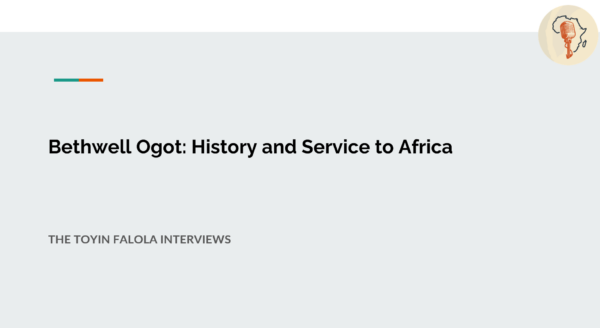
This is the final report on “A Panel Discussion on Bethwell Ogot: Historian and Service to Africa” on February 9, 2025. For the transcript: https://www.youtube.com/live/bTppgToFF0M
The danger of one-sided historical narratives is usually obscured by the ignorance of the targets whose past events are handed down. When a people’s history is rendered, the consumers of the content often do not understand how such narrative interferes with their original sense of identity, as they sometimes cannot connect how the history told about them is linked to how they conceive themselves and frame their world. Meanwhile, anyone who speaks the history of others has always had an intention in mind. At the most basic level, they are concerned about telling the coming generations about the deeds of past individuals so that they would understand or get familiar with the series of activities their forebears had accomplished in the past. In other situations, the revelation of history to others is meant to achieve more than this. Historians often use their professional capacity to remodel the world so that their telling of history helps to reconfigure the audience’s minds in a particular way. Curiously, when an insider tells such history, they are usually interested in using such avenue to reorientate the younger ones to influence their idea formation and then recalibrate their thought processes. However, when such history is told by an outsider, especially ones that are filled with malicious intents or have sinister ambitions, the consumers of such history stand a chance to face critical challenges because of their mind re-engineering process that is activated through the telling of wrong history as kick-started by such individuals. Africans were a victim of revisionism for a long time.
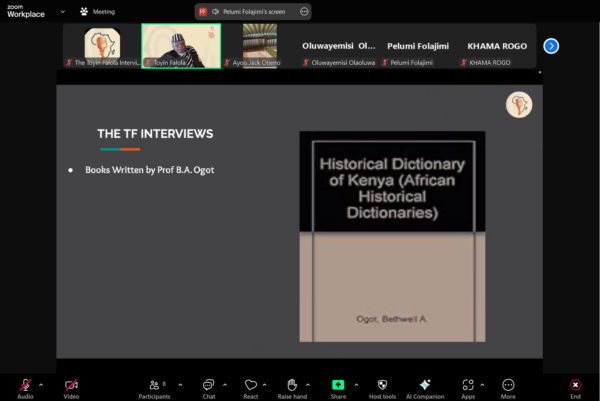
Until the dishonourable end of the Second World War exposed the fragility of Europeans and dismantled their human and technological resources, the imperialists were the significant handlers of African history. Since they were pursuing an expansionist agenda, they invested heavily in revisionist history, which changed the events and activities of the past generations of Africans, thereby obviating the contributions that these individuals had made earlier. Of course, such a mission was successful for many reasons. For one, Africans of the period who attended Western education centres to acquire knowledge did not have the instruments to challenge the dominant narratives, which incapacitated their minds from validating or invalidating the foundation of revisionism that plagued their educational ecosystem. But the end of the Second World War marked a new beginning as it set the ground for the repudiation of hegemonic narratives occasioned by the influx of now-enlightened Africans who had the means and the commitment to challenge the establishment in the ways they could. I entered different learned Africans, one of whom is Professor Ogot. One of the immediate concerns of such individuals was that they challenged the crucibles of Western historical narratives about Africans, which had caused severe damage to the psychology of the African person. To be clear, Africans who had consumed revisionist history in Western schools before this time had doubted their true identity, having doubts about the genuineness of their human nature. Low self-esteem kicked in for the majority of them.
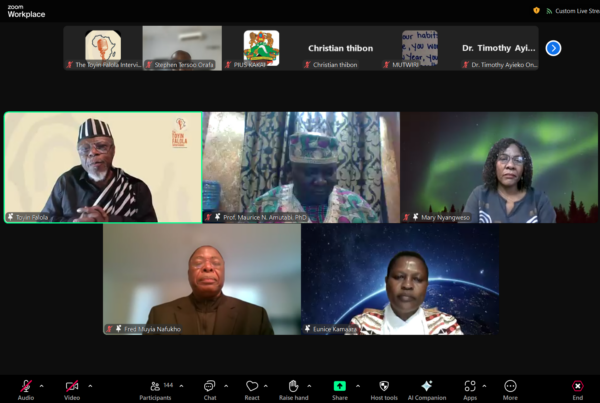
The restoration of African dignity came with pioneers of African history in modern times, and Professor Ogot takes a very significant position in that direction. As already implied, how people see themselves matters in the grand scheme. Before Ogot’s profound scholarship emerged, Africans had always seen themselves from a European lens, and the refraction was not palatable. However, when this man emerged as a scholar in the East African region, he redefined how Africans see themselves and corrected outsiders’ wrong notions against Africans. He made sure to establish that contrary to the mistaken assumptions that Africans were indeed incapable of facilitating their intellectual growth or managing themselves accordingly, the history of their past is a confirmation that they have enjoyed tremendous success in the past and that they have something from which they could draw as inspiration for creative development, initiatives and inventions that would rival others. One of the most immediate results of this revelation is that Africans began to regain their consciousness, starting with their evaluation of Europeans in a different light, which is a clear departure from what they used to do. Africans began to understand that they were not different from Europeans in every ramification, which contributed to the struggles for emancipation and liberation from the claws of imperialists who had a choke hold on the African political and economic systems. More than this, his teachings changed the way they saw themselves.
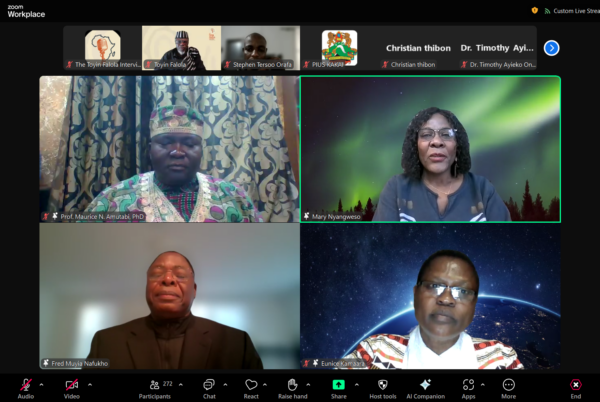
To become this committed and be emboldened by the desire to chat a new course for the African people, Professor Ogot had to become more determined. Traditionally, his background in intellectual engagements is mathematics and philosophy. He trained to become an expert in these areas of knowledge, and he has demonstrated satisfactory capacity in these domains. However, that was to be altered when he realized he had a different spark from within himself. He suddenly became interested in professional history and wanted to acquire methodological competence as a thoroughbred historian. Evidence indicates that he eventually accomplished this desire, but this does not come without its attendant challenges. For historians of his age, the conventional source of history acceptable within the academia is different. It is a practice that lionizes only the European standards of extracting information from the past. But Ogot became fixated on the desire that he believed would become something transcendental for the coming generations. He wanted the world to understand that the history of Africans, who had made strenuous attempts to obliterate, is enduring or even more resilient than they could have imagined. He understood that once they devise the appropriate mechanisms to extract the history of the African past, it would be possible to repudiate hegemonic narratives and bring to the limelight all the outstanding contributions that Africans have made to human progress in history and their current trajectories.
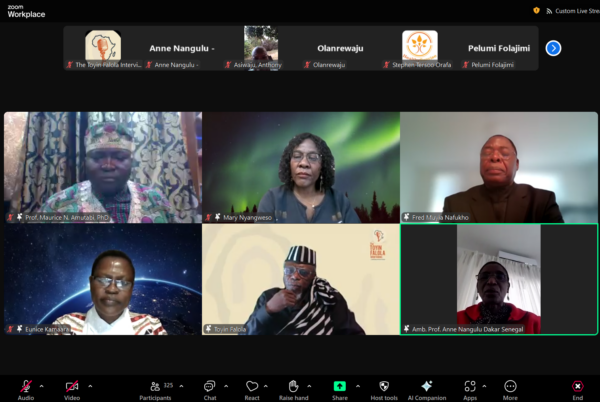
Then, he introduced the oral archive as an imposing technology for extracting information. This generated heated controversy in public intellectualism as numerous scholars of European origin challenged the idea that the content of human history should be drawn from oral sources. Ogot considered this organized impediment as ironic and strange. He believed, for instance, that the history of everyone and everything in the universe is handed down through orality, where people who committed collective actions in their society transfer them to the generations that succeeded them. Before the world discovered writing as an information protection agency, they had been familiar with the documentation of past events in oral archives, which people could access anytime for information retrieval. The fact that Europeans began using the medium of writing as their source of information retrieval does not negate the fact that a large group of people worldwide were unfamiliar with such a scribal system. Therefore, this does not invalidate sources of information they were familiar with, as it is common knowledge that everyone across the world has always documented their activities and experiences in some way, to the extent that the generations to come will retrieve them for their good. For this reason, Ogot challenged the establishment and made his mark by situating Africa on the global map through the telling of their history, retrieved from people who have committed the actions of the past into their memory. They stood against it; they did not want such a proposition to see the light of the day, but Ogot was undaunted by their unsolicited protest until he made known the fact that information about Africans was preserved in the minds of people who were considered existentially valuable for their civilization.
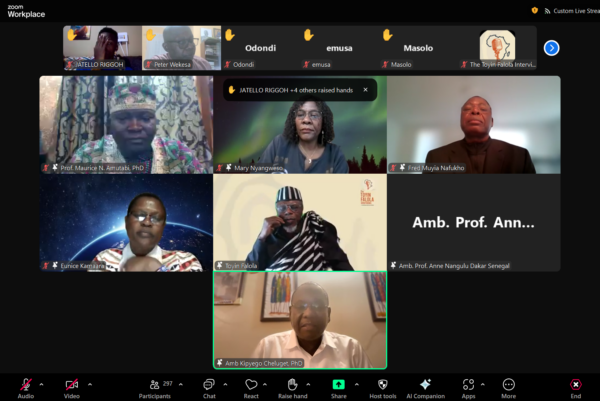
In any case, Professor Ogot left a profound footprint that others can follow in their quest to advance their general intellectual aspirations. He was known to be fair and transparent to everyone he dealt with. Considered a man of confidence and honour, Ogot could channel his intellectual energy into a powerful instrument he used to negotiate better and more productive ways for Africans of his generation and the following ones. Although he did not exclusively make efforts to reestablish African history within the appropriate context, he provided the pioneering guide for East African intellectual identity. He collaborated with others across regions to ensure that Africans began a better approach to their own genuine development and intellectual emancipation. He touched several lives positively, and people today have borne witness to the immeasurable greatness which he brought to their lives by the action of challenging colonial ideals that were targeted at the exploitation, extermination and eradication of African historical legacies. In that stead, his writings exonerate Africans from all the outrageous calamities that Eurocentric narratives have brought them.
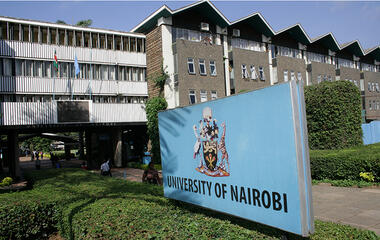
Great job, Prof. Falola. You are a legend!
We cannot be grateful enough to you for what you are doing with and for Africa. Blessings.